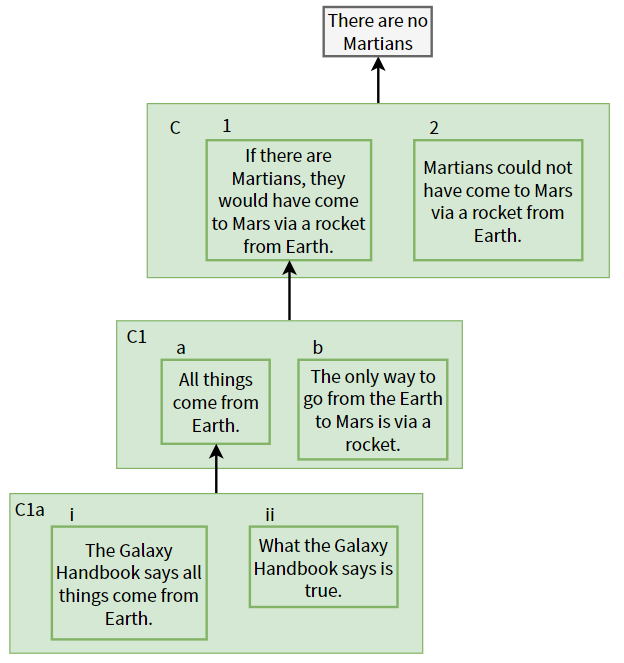Hi. I tried posting this yesterday, after signing up, but it just disappeared. I figured it was either not accepted by moderators or I tried posting it in the wrong place. (I was viewing the initial welcome message and maybe directed it there by accident?) Anyway, I figured it wouldn’t hurt to try again in case it was the latter.
This particular post has to do with how Augustine’s reasoning is characterized on page 122. Dr. Swamidass writes,
“If the earth was a globe, did people live on the other side? In City of God, from about AD 420, St. Augustine concluded no, because antipodeans would not descend from Adam.”
If we were to map this, we would end up with something like the following:

Call this argument A. However, here is the exact quote from Augustine, which I think is being referred to:
“But as to the fable that there are Antipodes, that is to say, men on the opposite side of the earth, where the sun rises when it sets to us, men who walk with their feet opposite ours, that is on no ground credible. … For Scripture, which proves the truth of its historical statements by the accomplishment of its prophecies, gives no false information; and it is too absurd to say, that some men might have taken ship and traversed the whole wide ocean, and crossed from this side of the world to the other, and that thus even the inhabitants of that distant region are descended from that one first man” (The City of God, trans. Schaff. Book 16, chapter 9).
Here is how I think we would map Augustine’s argument:
Call this argument B. Now it might seem like Dr. Swamidass is simply giving a more concise version of the same argument (that was probably his intention and it’s possible to rearrange some things to make this fit–see below), but these seem to be different arguments with different strengths and weaknesses.
I say that because if we posit that antipodes exist for both arguments different conclusions follow. For A it follows that some humans did not descend from Adam. For B it only follows that they sailed to “that” side of the world from “this” side of the world.
Another way of seeing how the arguments are different but also that B could be rearranged to draw out an extra premise that we find in A might be to pose a Martian argument that makes some Augustine-like assumptions clearer:
Argument C:
Why does this matter? One important difference is that for arguments B and C, it’s easier (or at least more obvious how) to resist the falsification of some premises that may be important.
But maybe I’m overlooking something and this doesn’t matter? After all, it is possible to derive a premise like A1 from Augustine’s premises:
Still, it doesn’t seem to me that Augustine uses premises like these to arrive at a claim like “If antipodes exist, then some humans did not descend from Adam.” The weight of his argument doesn’t hang on a premise like that because his beliefs and statements on universal adamic descent seem to be in the background set of assumptions–like the part of the iceberg under the water. An analogy might be if I said “I’ve heard there are humans at the center of the earth.” One’s immediate thought wouldn’t be “If there are, then they aren’t humans!” but, rather, “How would they have gotten there?!”
Or maybe Dr. Swamidass has some other quote in mind from Augustine?


